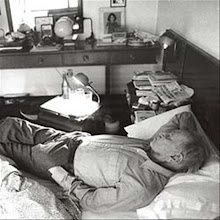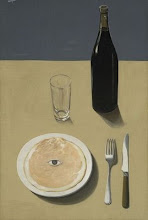To understand the "masochistic dimension" of female desire, in other words the "eroticization of social relations of domination" (for many women, dominance in men is exciting,' as Bartky puts it), one has to hypothesize that women look to men (and also, but secondarily, to the "fashion-beauty complex") for subterfuges to reduce their "sense of physical inadequacy"; and it can be assumed that the gaze of the powerful, which carries authority, especially among other men, is particularly able to fulfil this function of reassurance. The structure imposes its constraints on the two terms of the relationship of domination, and therefore on the dominant themselves, who can benefit from it while being, in Marx's phrase, "dominated by their domination". And this is because, as is shown well enough by all the games associated with the opposition between the big and the small, the dominant cannot fail to apply to themselves, that is, to their bodies and to everything they are and do, the schemes of the unconscious, which, in their case, give rise to formidable demands - as is sensed, and tacitly recognized, by the women who do not want a husband smaller than themselves. And so one has to analyse, in its contradictions, the masculine experience of domination, turning for this purpose to Virginia Woolf not so much to the author of those endlessly quoted classics of feminism, A Room of One's Own and Three Guineas, as to the novelist, the author of To the Lighthouse, who, no doubt aided by the anamnesis favoured by the work of writing, presents an evocation of the relations between the sexes freed from all the cliches on sex, money and power that still persist in her more theoretical texts. For in the background of this narrative one finds an incomparably lucid evocation of the female gaze, which is itself particularly lucid on the desperate, and in its triumphant unawareness somewhat tragic, effort that every man has to make to rise to his own childhood conception of manhood.
Pierre Bourdieu
1930 - 2002

![[...]](https://blogger.googleusercontent.com/img/b/R29vZ2xl/AVvXsEjeNC2Kyxd34r2LuofHe9-vdXHeHwG3_2NhVmIOTlK2moU0Q4R7taMlS8iMmQgEl1-NdaRsPrLdREzfQZYKfUgjslwLZUZe67dAfFBREu-YRx6WGX-vAUt5eJT4_-lFwT4dGzGCQQ/s220/11798115_858304687558226_1857652538_n.jpg)














































